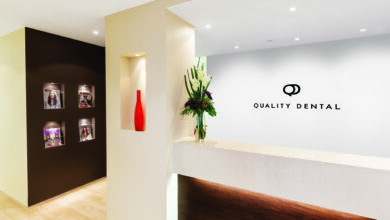Types of Permanent Dental Crowns
If your dentist has recommended permanent dental crowns as a possible treatment option for your decayed or damaged teeth, you may be interested to know that there are different types of tooth-like caps that you can choose from.
Unlike temporary crowns that are mostly made of acrylic or stainless steel, permanent crowns are designed for long-term use hence the materials used to fabricate them are usually of a markedly superior quality. Temporary crowns are placed as a protective cover (over the prepared tooth) while the patient waits for his or her permanent crown to be fabricated at a dental lab.
Typically referenced in terms of the material from which they are fabricated, the common types of permanent crowns include: All-porcelain, all-metal (including gold and alloys), stainless steel, porcelain-fused-to-metal (PFM), all-resin or all-ceramic. Different types of permanent dental crowns vary in terms of pricing, aesthetics and functional quality.
Porcelain-fused-to-metal (PFM) crowns can be colour matched to your adjacent teeth, unlike metallic crowns.
Let’s take a closer look at the different types of permanent dental crowns that are available:
All-porcelain or all-ceramic crowns: These types of crowns can be made from pure ceramic or new reinforced composite resin. They make popular choices amongst cosmetic dentists because they not only improve the appearance of your teeth, they offer robust materials that protect and strengthen them. Using new bonding technology, a cosmetic dentist can provide this metal-free restoration with an excellent bond to your tooth. All-porcelain or all-ceramic crowns are ideal for front teeth restorations as they look almost identical to natural teeth. Using a shade guide, the cosmetic dentist can provide the most natural colour match, compared to any other types of crowns.
Using material that is thin, light and biocompatible, all-ceramics are frequently recommended for patients with minimal spaces between their teeth but want a natural appearance. Although considered less durable than their porcelain-fused-to-metal or all-metal counterparts, all-ceramic crowns make a healthy choice with little or no risks of tooth sensitivity or allergy.
All-porcelain or all-ceramic crowns can be made from pure ceramic or new reinforced composite resin.
All-resin dental crowns are the least expensive of porcelain and ceramic crown types, although they wear down over time and are more prone to fracture than porcelain-fused-metal crowns.
Porcelain Fused to Metal (PFM) Crowns
Unlike metallic crowns, this type of crown can be colour matched to your adjacent teeth. Its metal substructure makes it resilient to cracks or fractures while its outer porcelain layer gives it an aesthetic quality surpassed only by all-porcelain and all-ceramic restorations. One drawback is that the underlying metal shows through as a dark line near the gum line of the crown, which becomes highly noticeable when the gums start to recede.
All Metal Crowns
These include crowns made of gold, palladium or base-metal alloys like chromium or nickel.Probably the most durable of all, metal crowns can handle chewing and biting forces very well, with minimal risks of fracture or chips. However due to their stark appearance, they are more suitable for molar teeth hidden away in the back of the mouth.
All-metal crowns are made of gold, palladium or base-metal alloys like chromium or nickel… probably best used for molar teeth hidden away in the back of the mouth!
Zirconia Crowns
Milled from a block of crystal, zirconium crowns are known for their aesthetic appearance and extraordinary toughness. The zirconium material is not only biocompatible and natural-looking, it can be easily modified to fit your specific restorative needs whether in terms of colour, shape or size. Despite being the more expensive option, zirconium is fast gaining traction as a choice material for dental crowns.
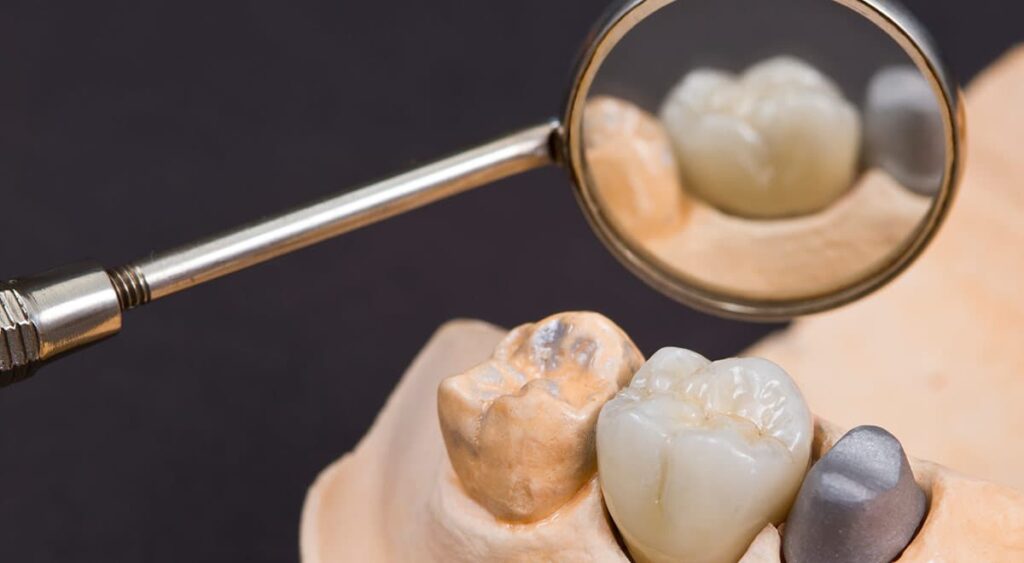
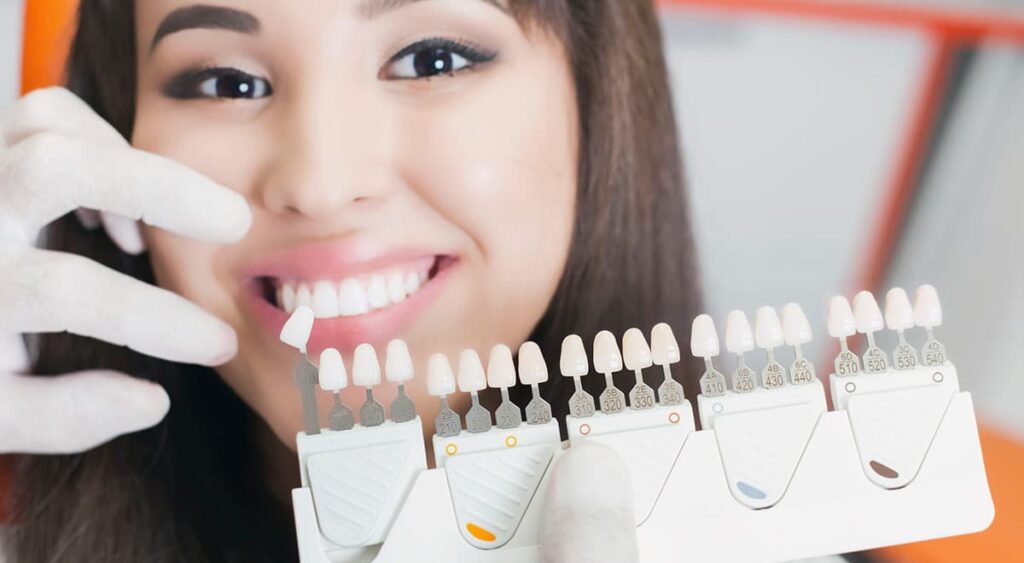
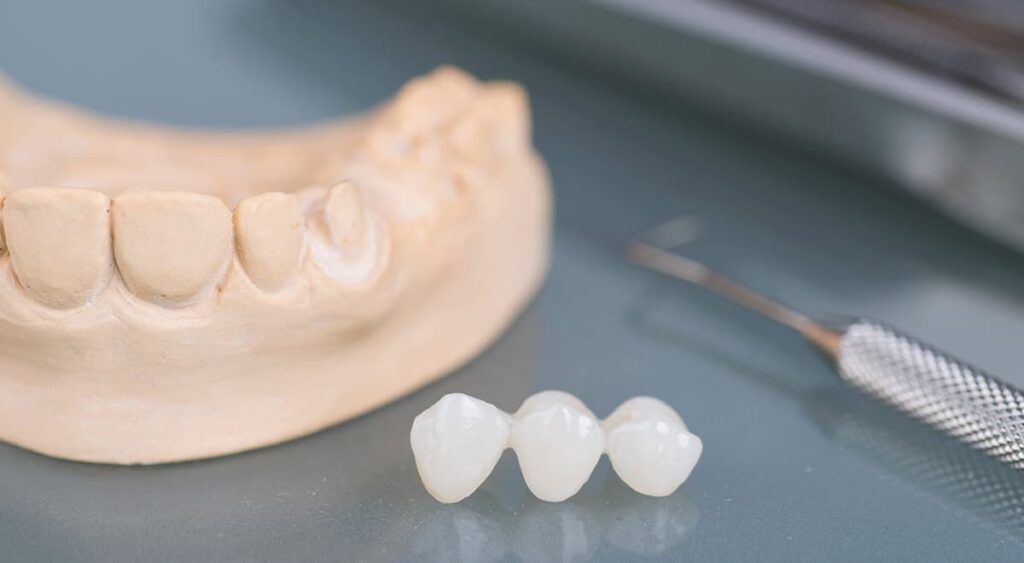
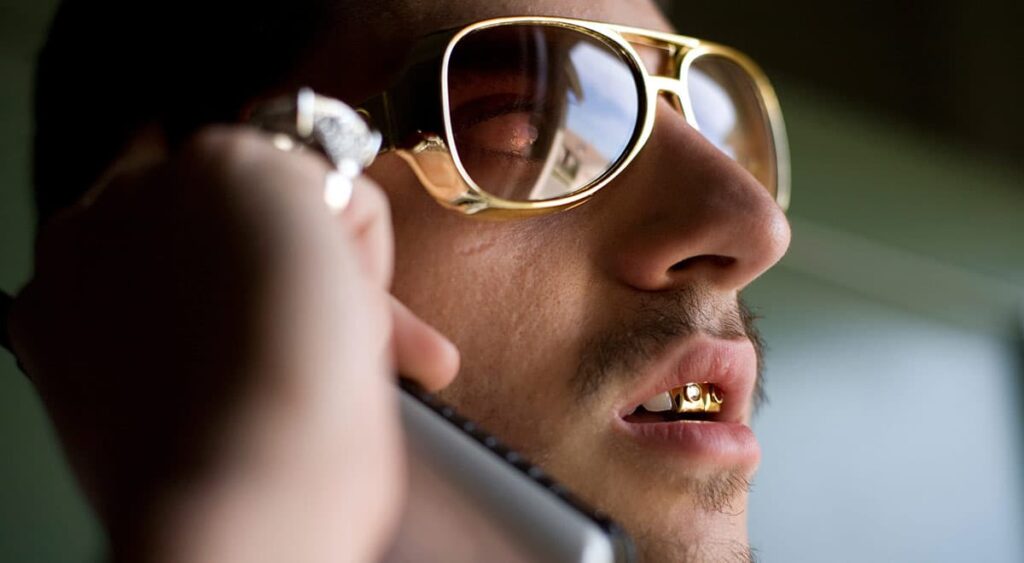

![36725534_illustration [Converted]](https://www.qualitydental.com.au/wp-content/uploads/2022/08/Quality-Dental-Sydney-46-teeth-whitening-390x220.jpg)

